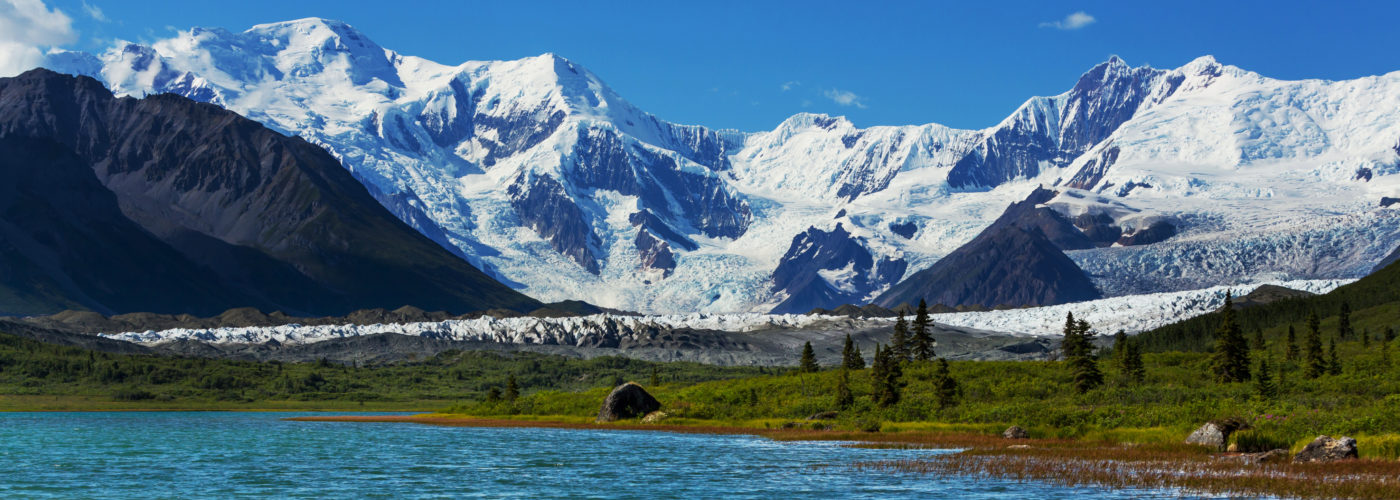America’s National Parks conjure up visions of wide open spaces, and sweeping, uninterrupted vistas. But if you’ve ever visited one of the more popular national parks in peak season and had to wait for a parking space, jostle with crowds at a viewpoint, and sat in a (picturesque) traffic jam, you know that’s not always the reality.
Unless you take a trip to one of America’s least-visited national parks—which get as few as 2,800 visitors per year. Solitude, here you come.
Editor’s note: Note that some parks may have closed/limited amenities due to the pandemic. Save these ideas for when it’s safe to travel again, and always follow all COVID-19 restrictions, rules and safety regulations both at your destination and upon returning home.
Visitor statistics are based on the NPS’ recorded number of recreational visitors to the national parks in 2020.
Gates of the Arctic National Park & Preserve, Alaska
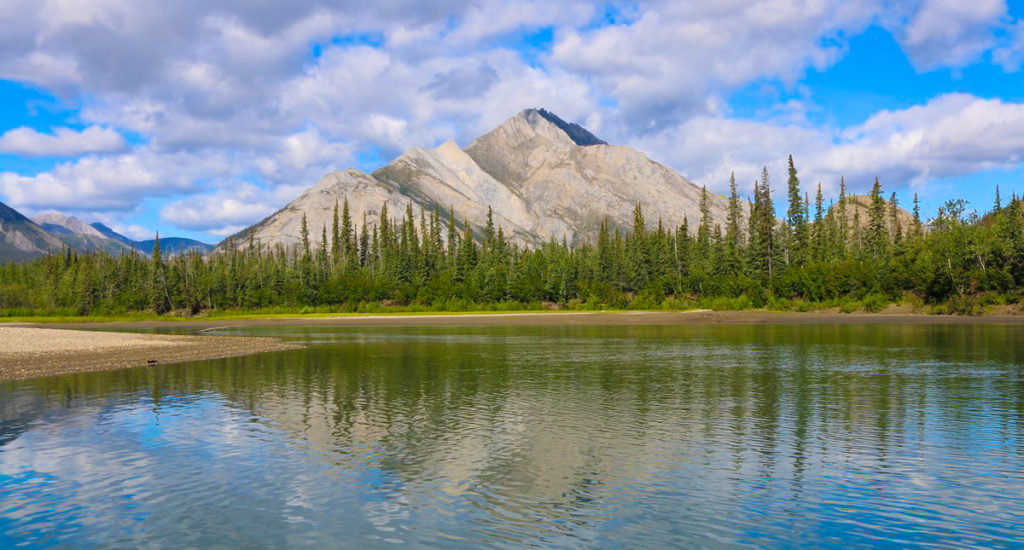
Gates of the Arctic National Park & Preserve certainly isn’t the least-visited national park because of its scenery—six wild rivers wind their way through deep, glacier-carved valleys, auroras light up the sky on winter nights, and caribou roam free. However, many visitors are deterred by the park’s remote location and inaccessibility. There are no roads or even trails within the park, so you’ll have to hike in or arrive via plane (like an air taxi equipped with floats or tundra tires for landing in the wild).
Number of visitors in 2020: 2,872
National Park of the American Samoa, American Samoa
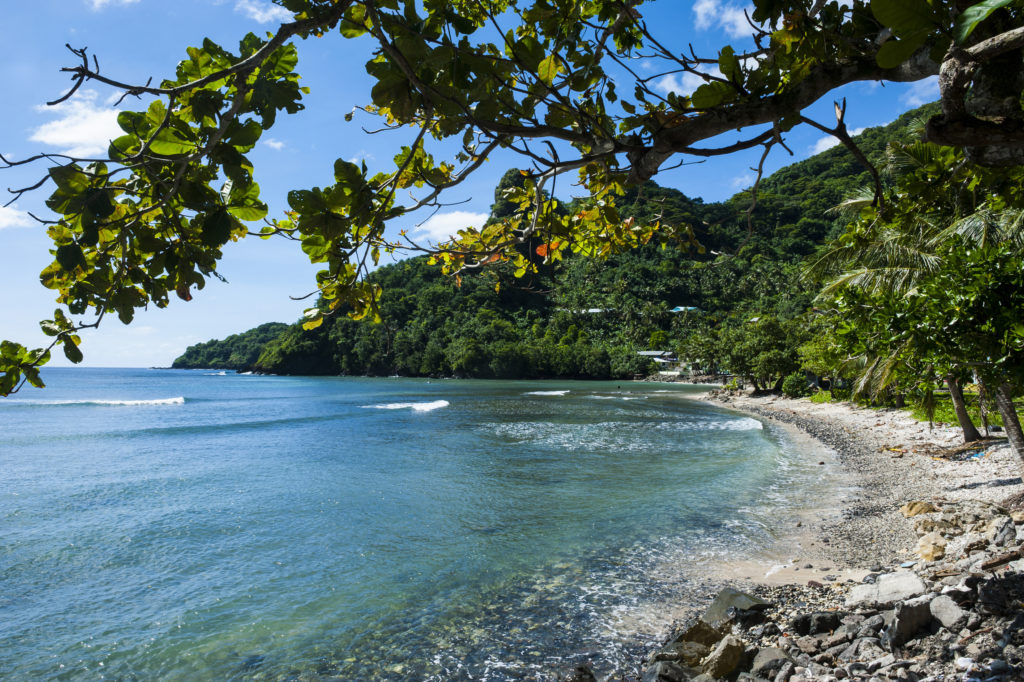
Located 2,600 miles southwest of Hawai’i, the National Park of the American Samoa is the most remote national park. The national park is spread across three islands (Tutuila, Ta’ū, and Ofu). To get to this far-flung part of the South Pacific, you can fly to Pago Pago International Airport on Tutuila Island and catch inter-island flights from there.
With white sand beaches, stunningly clear waters, and lush green rainforests, this is the most tropical paradise-like national park by far. Be sure to pack your snorkeling or SCUBA gear if you come for a visit—about 4,000 acres of this park is underwater and is home to an amazing diversity of wildlife.
Number of visitors in 2020: 4,819
Lake Clark National Park & Preserve, Alaska
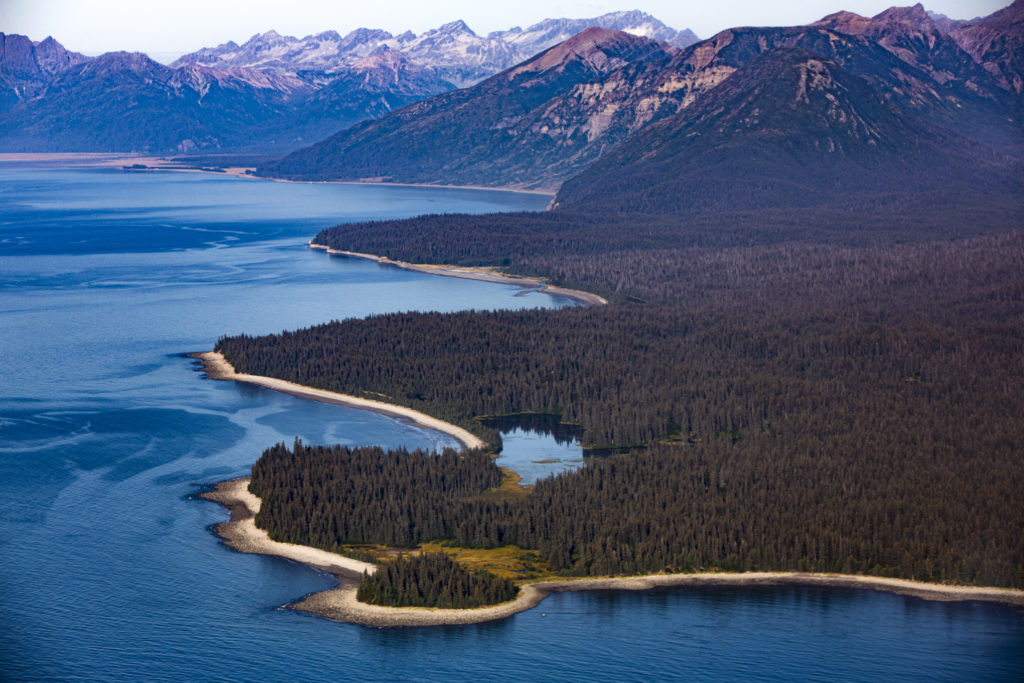
You won’t be distracted by traffic noises at Alaska’s Lake Clark National Park, which isn’t on the road system (so most visitors get around by small plane or boat). Although there are plenty of lodges within the park, if you really want the true remote experience, you can book a public-use backcountry cabin through the NPS, or camp out in the wilderness.
Chinitna Bay inside the park is one of the best places in the world to see bears in the wild—you might be able to view 20 brown bears from a single location.
Number of visitors in 2020: 4,948
Glacier Bay National Park & Preserve, Alaska
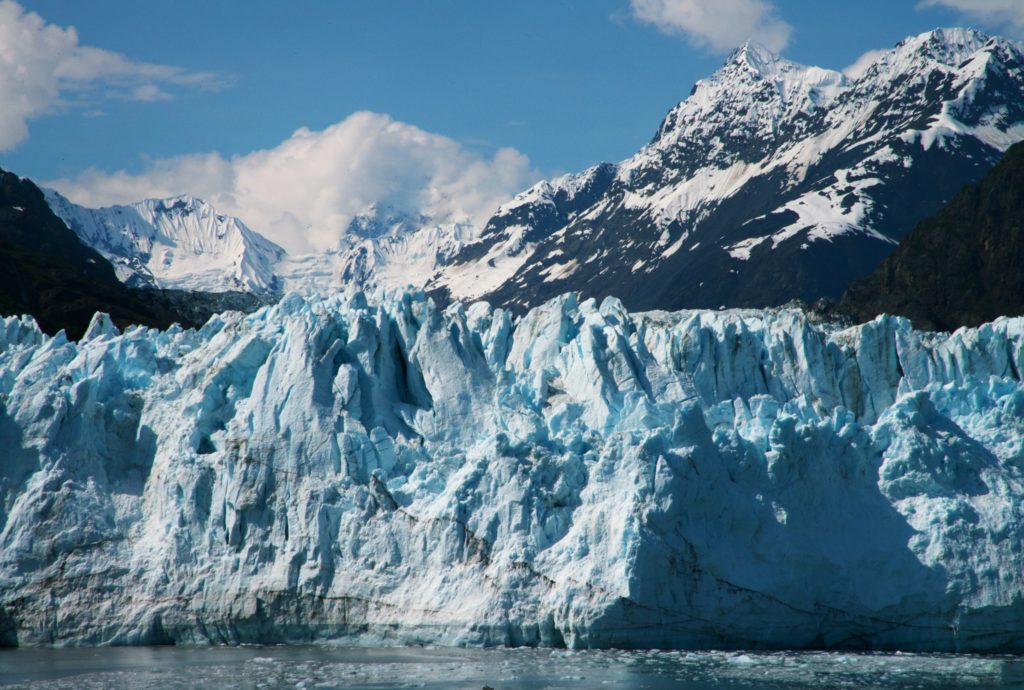
With over 3.3 million acres to explore, you’ll never run into crowds at Glacier Bay National Park and Preserve. Accessible by plane or boat, the NPS describes Glacier Bay as “a homeland, a living laboratory, a national park, a designated wilderness, a biosphere reserve, and a world heritage site”. The park is all those things and more, with plenty to admire on both sea and land—including the stunning glaciers that the park is named for.
Number of visitors in 2020: 5,748
Isle Royale National Park, Michigan
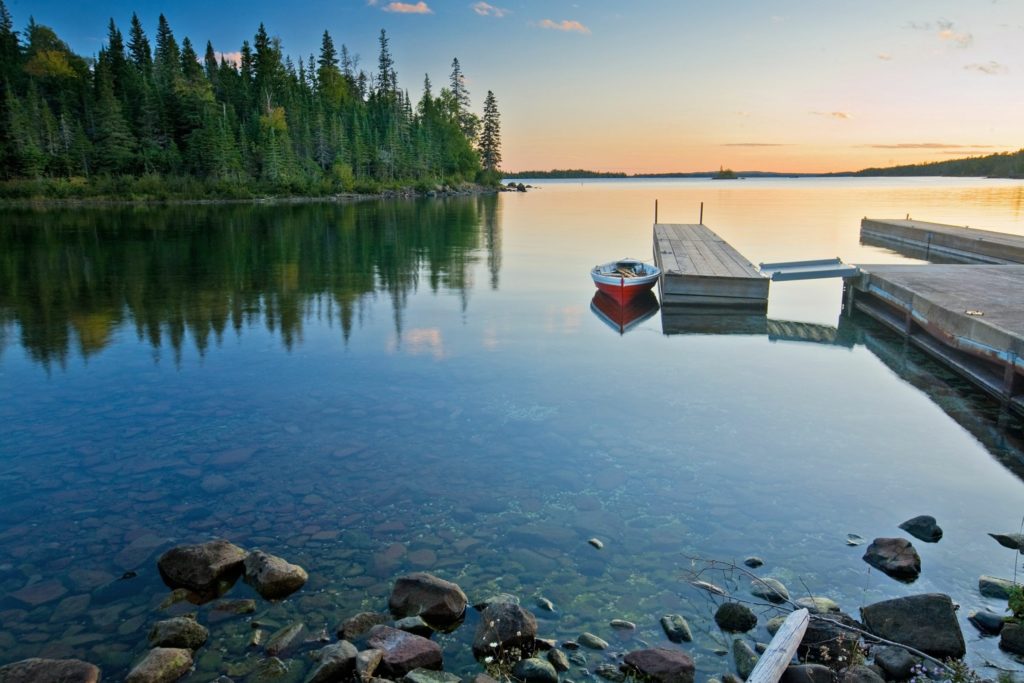
Isle Royale National Park might have the most unique location of all the national parks—it’s inside Michigan’s Lake Superior. This truly isolated archipelago can be reached by seaplane, ferry, or private boat (your car will remain behind on the mainland). Composed of many islands, lakes, and bays, this national park offers many miles of waterways to explore via canoe or kayak. The water may be cold, but if you’re prepared with a wetsuit, the chilly waters have preserved a variety of shipwrecks that you can explore through SCUBA diving. Or, take your adventure inland and venture up one of the scenic hiking trails that wind around the park.
Number of visitors in 2020: 6,493
Kobuk Valley National Park, Alaska
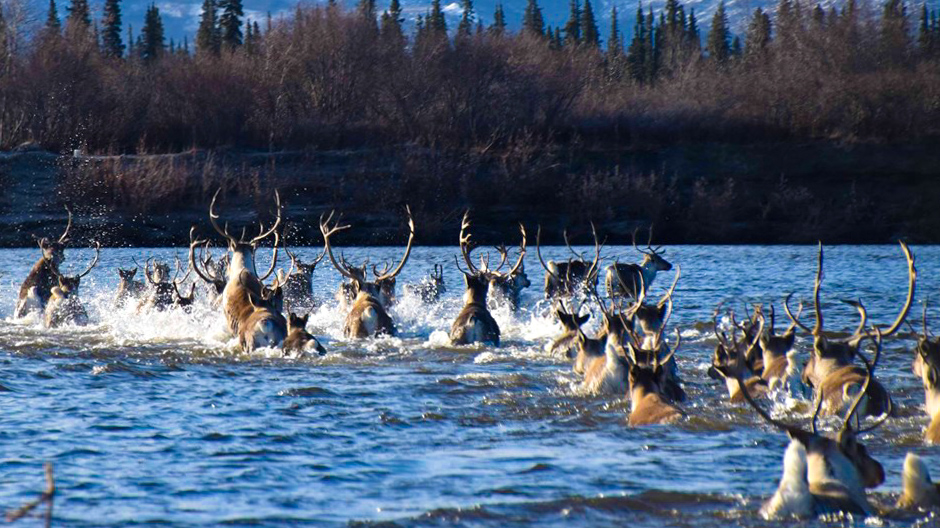
Only around 11,000 people visit Kobuk Valley National Park each year, meaning humans are seriously outnumbered here compared to caribou. Every fall, half a million caribou partake in an 8,000 year-old migration across the Kobuk River, making for quite the viewing spectacle.
The park has over 1.7 million acres of rugged backcountry to explore, but there are no roads, entrance gates, or campgrounds. Visitors can get around via small plane, boat, hiking, or even skiing or dog sledding in the winter (bring your own dog and sled).
For a truly special experience, pack a tent and supplies and set up camp directly on the Great Kobuk Sand Dunes, the Little Kobuk Sand Dunes or the Hunt River Dunes—three active sand dune field that undulate across 20,500 acres.
Number of visitors in 2020: 11,185
Wrangell-St. Elias National Park, Alaska
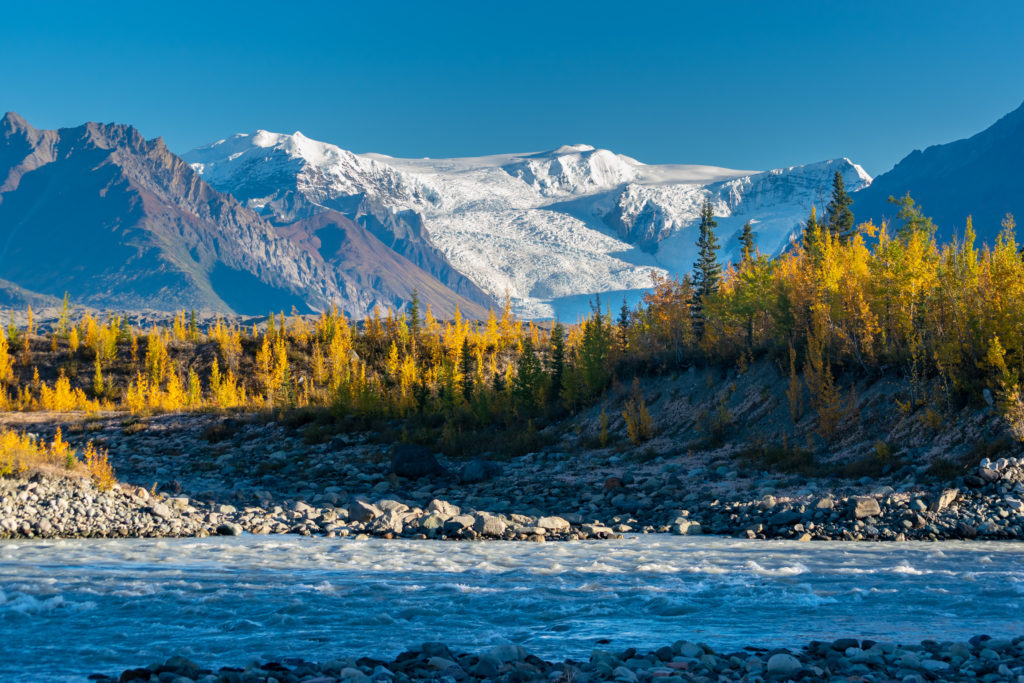
Wrangell-St. Elias National Park is America’s largest national park. The park sprawls across 13.2 million acres, yet gets only 16,655 visitors per year (so you’ll have plenty of room to spread out). To put the park’s size into perspective, Wrangell-St. Elias is as big as Yellowstone National Park, Yosemite National Park, and Switzerland combined.
The park is home to the 2,000 square-mile Wrangell Volcanic Field, which contains some of the highest peaks in North America, including the 14,163 foot Mount Wrangell, which is one of the largest active volcanoes in the world.
Wrangell-St. Elias houses both fire and ice. Glaciers cover 35 percent of the park’s land, and include the largest tidewater glacier in North America, the Hubbard Glacier.
Number of visitors in 2020: 16,655
You Might Also Like:
• The 8 Best Ticket Websites for Booking Day Tours and Travel Activities• The Best Travel Leggings of 2023
• The 6 Best Quiet Luxury Pieces for Travelers
• The Ultimate Camping Packing List: 29 Essentials
• Discover the Hidden History of Vikings in Sweden
We hand-pick everything we recommend and select items through testing and reviews. Some products are sent to us free of charge with no incentive to offer a favorable review. We offer our unbiased opinions and do not accept compensation to review products. All items are in stock and prices are accurate at the time of publication. If you buy something through our links, we may earn a commission.
Related
Top Fares From
Today's Top Travel Deals
Brought to you by ShermansTravel
France: 8-Night Paris, Avignon & Nice...
Infinity Worldwide Vacations
 vacation
$2880+
vacation
$2880+
Poconos: 3 Nts in Garden of...
ResortsAndLodges.com
 hotel
$305+
hotel
$305+
7-Nt Canada & New England Cruise,...
Princess Cruises
 cruise
$839+
cruise
$839+
